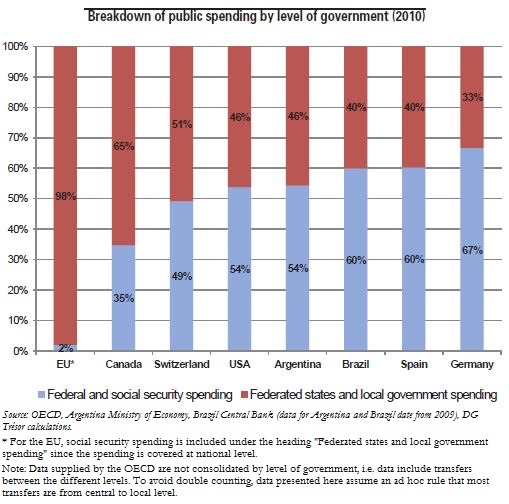Trésor-Economics No. 120 - A budget for the euro area
The sovereign debt crisis that started in 2010 was a reminder of the euro area's design flaws: the area comprises a central monetary pillar (the ECB), but no unified "fiscal pillar", as in a federal state. Although its aggregate fundamentals are fairly sound by comparison with other currency areas, the euro area has experienced an episode of severe macroeconomic and financial instability unseen anywhere else.
Although the situation in the euro area has stabilised since mid-2012 thanks to the efforts of the Member States and the ECB (through the reform of economic governance, governmental commitments with respect to their public finances, a strengthening of the action of the ECB, financial solidarity mechanisms, a deepening of Banking Union, and a shift in the policy mix in favour of growth), this crisis brought home the need for a currency area to have a permanent stabilisation mechanism capable, in particular, of dealing with asymmetric shocks. This mechanism could take the form of a common budget for the euro area, with significant resources.
This budget, consisting of cyclical revenues (e.g. corporate income tax) and used to finance countercyclical spending (e.g. unemployment benefits), would contribute to macroeconomic stabilisation in the euro area via automatic stabilisers at the central level, together with a capacity for discretionary intervention. A development along these lines might also make the ECB more comfortable with taking action – if necessary – on the central debt backed by this budget, and so contribute to the financial stability of the euro area.
The creation of a budget for the euro area would necessarily be a medium-term project, calling at the same time for a further step in the direction of political integration to ensure the democratic legitimacy of the new prerogatives transferred to the European level. The resulting greater solidarity could also justify a further strengthening of the euro area's economic governance. Moreover, a change of this kind would structurally affect many different areas, in the social and tax fields particularly. Overall, the introduction of a central budget would significantly improve the economic and institutional workings of the euro area, thereby boosting its growth potential.
